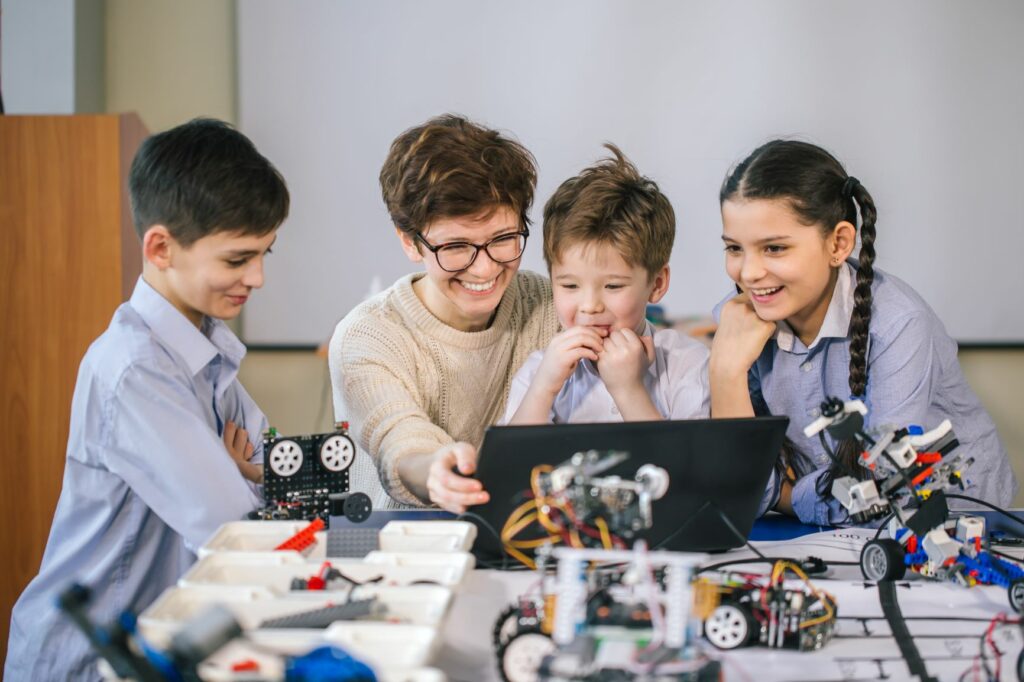
Why should our students learn how to code? The answer is not “so that they would do better in tests”. Coding skills are a vital 21st century competence that should be seen as the future literacy for all rather than as a skill set for some. As technology surrounds us, those who can understand and manage it thrive!
Computer science – unlike natural sciences like physics or biology – is not a study of a pre-existing world, but rather a world created by man. Studying such a “science of artificial objects” requires the student to build these objects themselves. This is why learning coding requires the teaching to be aligned with such approach. Teaching for tests or lecturing for passive students does not fit the goals of coding education.
Instead, teaching should draw on student-centred practices that put students – not the teacher – in the focus of the learning process. Promoting students’ meaningful and active learning should be at the heart of this approach.
Teacher’s role does not fade out with student-centred learning – quite the opposite!
Student-centred learning does not mean that we would need to get rid of teachers. However, the teacher’s role changes as students’ autonomy is raised. In traditional teaching, the teacher’s role is the one of an expert. The expert shares their knowledge, and the role of the novices (the students) is to receive this knowledge.
In student-centred learning, the teacher’s role shifts into a coach. Through this role, their main task is to support the students without taking away their autonomy. For example, the teacher can facilitate the structure for a coding project with the students. The teacher could set the learning goals for each of the project lessons and help students to work in groups, but not micromanage students’ actions. Traditional teaching practices see failing as something that should be avoided, but as a coach, the role of the teacher is to foster failure and to turn failures into learning opportunities. Most notably, the teacher does not need to be the best coder of the classroom. Teacher’s pedagogical expertise is still needed as with more traditional ways of teaching.
Teacher professional development 3.0 needs to address the changing role of teachers
Student-centred learning is not a tool box of tricks, nor is it a list of “what works” practices. It is a teaching philosophy that aligns pedagogical practices (e.g., project-based learning) with their underlying purposes (e.g., the goal of promoting student interaction).
This idea needs to be addressed by future teacher training programs. We believe that such programs need to acknowledge the already existing expertise of teachers. This is best achieved through active and work-integrated training modules. Students and other teachers should be seen as an important part of the process of teacher professional development, as both offer ways for feedback and reflection.
We invite all teachers to join the online course 21st Century Coding Pedagogy, which offers an entire theme dedicated into explaining the requirements of changed teacher role and very practical exercises on making the change happen. Learn more here.